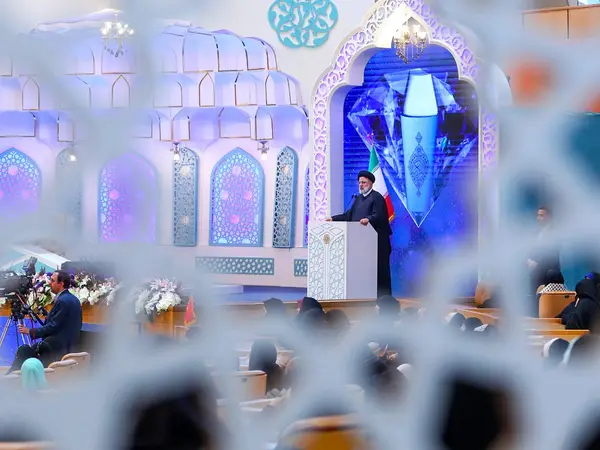An official has disclosed that President Ebrahim Raisi is among three individuals designated by Supreme Leader Ali Khamenei to select the Islamic Republic's future leader.
Entekhab website on Wednesday quoted Hassan Ameli, a member of the Assembly of Experts that Raisi is one of the members of a committee of three appointed by Khamenei to determine his successor. Ameli said that he himself is also on the committee. Earlier, Rahim Tavakol, another Assembly member had revealed his membership in the committee.
This suggests Khamenei's confidence in Raisi's victory in the upcoming March 1 Assembly of Experts election. Raisi, the sole candidate from South Khorasan Province until last week, now faces a second candidate, for the sake of formality.
The new candidate, Hassan Rouhbakhsh has told the press in Iran that he has no intention of competing with Raisi, and that he has taken part in the election to end the embarrassing situation for Raisi and to thank the Islamic Republic for all that it has given to him during the past years.
All signs indicate that Raisi is leading the succession committee, as the other two clerics have remained relatively unknown to the public and media, except for the few thousand locals who elected them to the Assembly. Ameli, in his interview with Entekhab, disclosed that during committee meetings, Khamenei issues orders and provides advice to Raisi.
What remains unclear is the role of the remaining 85 members of the Assembly of Experts if the committee of three is tasked with "finding" the successor to the Islamic Republic's leadership. Neither Khamenei nor the committee has provided an explanation for this matter. The Assembly has the constitutional task of selecting a Supreme Leader.
Ameli emphasized that the committee's "sensitive task" makes it the most crucial committee within the Assembly of Experts. Several years ago, Ayatollah Mohsen Araki, who initially revealed the existence of the succession committee, stated that due to the sensitive nature of their mission, the committee's members remain unknown to the rest of the Assembly.
Other members of the Assembly of Experts typically refrain from discussing the issue with the media, likely because they have limited knowledge about it. Those who do comment often make humorous or bizarre remarks.
Ahmad Beheshti, a cleric from Fars Province in the Assembly, expressed his desire for Khamenei's long life in a recent interview. He hoped that Khamenei's extended tenure would obviate the need for the Assembly to select another leader.
Another member of the Assembly expressed a different perspective, stating his wish for the Shiite hidden Imam to emerge after some 15 centuries of occultation and assume leadership, thus eliminating the need for a successor to Khamenei. Behesti also expressed hope for an uneventful tenure during both the current and future rounds of the Assembly. Reflecting on his 15-year tenure as an AoE member, he mentioned that he has consistently prayed that circumstances would not require the consideration of a replacement for Khamenei.
While the personality cult gives him the likeness of a divine status among his supporters, and Assembly members often deny that part of their responsibility is to keep checks and balances on Khamenei's performance, Mahmoud Mohammadi Araghi, a member of the Assembly, has claimed that unlike other countries, the Iranian people can take the leader to court if necessary.
This comes while many in Iran, including former regime insider Abolfazl Ghadiani say they will not take part in the March 1 parliamentary and Assembly of Experts elections and will encourage others to do likewise.
